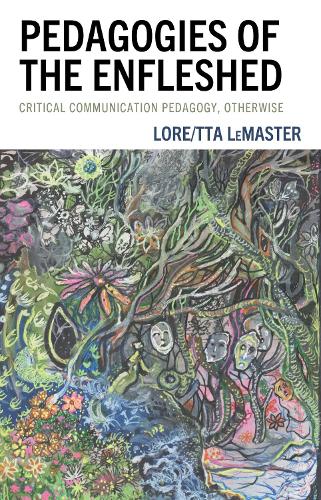
Pedagogies of the Enfleshed: Critical Communication Pedagogy, Otherwise
(Hardback)
Publishing Details
Pedagogies of the Enfleshed: Critical Communication Pedagogy, Otherwise
By (Author) Lore/tta LeMaster
Bloomsbury Publishing PLC
Lexington Books/Fortress Academic
5th February 2025
United States
Classifications
Professional and Scholarly
Non Fiction
Semantics, discourse analysis, stylistics
Gender studies, gender groups
370.115
Physical Properties
Hardback
302
Width 152mm, Height 229mm
Description
In Pedagogies of the Enfleshed: Critical Communication Pedagogy Otherwise, Lore LeMaster proffers a historic account of the rise of education and, in turn, communication studies as a distinct field of study. In doing so, the author reconsiders communications disciplinary origins with less of an emphasis on the mythos of the Ancient Greeks and, more accurately, relocates them within the historic context of U.S. settler colonial development and ever-expanding empire. LeMaster argues that the point of critical communication pedagogy otherwise isnt to instill critical sensibilities into our teaching, but to instead draw on lived experiences as grounds for more effective uses of communication to intervene in oppressive relations across (in)formal pedagogical contexts and in service of liberatory change. Where critical communication pedagogy calls for reform, critical communication pedagogy otherwise labors in service of liberation within the long arc of revolutionary change, beginning from y/our vantage as educators-as-learners. This is especially crucial, LeMaster posits, in the face of critical ongoing issues, including economic recessions, growing climate collapse, escalating fascisms, amassing white nationalisms, and U.S.-funded genocides, all amid an active pandemic. Ultimately, this book makes a compelling case for the need of new critical communication pedagogy tools or, at minimum, approaches to communication pedagogy that support critical worldmaking efforts beyond recognition and with resource support at the local level.
Author Bio
Lore/tta LeMaster is associate professor of critical/cultural communication and performance studies in the Hugh Downs School of Human Communication at Arizona State University.
